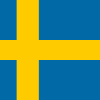How to make the process industry even more competitive with IT and automation – Sweden
In order to compete effectively in a global market, Sweden’s process industry has initiated the innovation programme Piia – Processindustri-IT and Automation, which drives the transition to a smarter and more competitive industry.
Objective: increasing the competitiveness of the process industry
Digitalisation is profoundly transforming industry and bringing both challenges and opportunities. This applies in particular to the process industry which extracts raw materials and processes them into products, such as paper and wood pulp, mining, steel sheets, copper wire, pharmaceuticals, oil and gas.
Together, Sweden’s process industry accounts for almost 50 % of Swedish net exports and employs around 400 000 people. In order to stand up to global competition, to recruit and develop the right skills and to reduce the climate footprint, Sweden’s process industry has initiated the Piia – Processindustri-IT and Automation industries.
Piia is a strategic innovation agenda aimed at ensuring that the process industry has the necessary IT and automation solutions to reap the benefits of digitalisation more efficiently than competitors on the world market.
Financed by VINNOVA, the Energy Agency and Formas, Piia is run by its own management board, management team and support groups hosted by RISE.
Broad mission to guide industry in digitalisation
Piia has a broad mandate to guide industrial companies, technology companies and research partners to explore, test and implement new technologies, approaches and tools.
There are currently a wide range of technologies used to make industry smarter – known as IndTech. These include cloud computing, AR/VR/XR, artificial intelligence, 5G, internet of things, big data, block chain, user experimentation and digital twins. In this context, Piia plays an important role in accelerating developments where new technologies enable smarter, safer and more climate efficient solutions for industry.
Piia works in a wide range of areas, including:
- Piia Insight – easily accessible information on the main trends in the IT and automation process industry.
- Piia Research – strengthens, coordinates and facilitates networking between Swedish research groups working in process-industrial IT and automation and building up an industrial Postdoc programme.
- Piia International – facilitates the involvement of Swedish companies and organisations in international cooperation for development and business.
- Piia Network – network groups of industry leaders and specialists to share knowledge and experience.
- Piia Projects – calls for proposals and strategic projects to promote innovation in the Swedish process industry.
- Piia Summit – annual conference and gathering point for Swedish process industry stakeholders.
This is why Piia is a good example
Both Sweden and Europe face major challenges in a globalised environment of fierce competition, but at the same time opportunities for the process industry and its suppliers.
By creating new types of orderly interaction between the process industry, its supplier companies and research organisations, Piia contributes, among other things, to equipping employees for digitalisation with new ways of working and tools, attracting the talents of the future and creating long-term and sustainable industrial competitiveness.
Extended activities
The basis for the whole of Piia is “National Power Collection for ProcessIndustrial Automation – an agenda for management, innovation and skills development”. There is also an English version of the Agenda. An annex to the Agenda provides an overview of a number of Swedish FUI environments, clusters and initiatives. There is also a programme plan for 2020-2022 setting out, among other things, the organisation and the plan for the implementation of the agenda. Together, these three documents are a good start to familiarise themselves with the project, learn lessons and find inspiration for similar collaborative projects.
The Piia publishes most reports on trends, drivers and digitalisation of industry from a broader perspective, as well as more specific sector studies for the industries it focuses on. A selection of the reports is also available in English.






